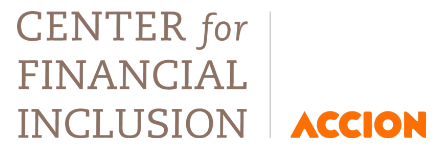
Financial Health Assessment |
Explore your Financial Health
A relatively new term in the financial inclusion community, financial health is a model for assessing how well one’s daily financial systems enable a person or household to build resilience to shocks and pursue opportunities and dreams. Whether rural or urban, in countries both developed and developing, individuals share a common aspiration for financial health.
Over the course of 2016, CFI collaborated with the Center for Financial Services Innovation (CFSI), which developed and applied the financial health concept in the United States and Dalberg’s Design Impact Group (DIG) to adapt CFSI’s U.S.-based financial health framework to a developing country, BOP context.. You can see the resulting framework in the report, Beyond Financial Inclusion: Financial Health as a Global Framework.
We encourage you to use the Financial Health Survey Guide after you finish the survey to better understand your results.
No names are used in this survey, so it is anonymous. We kindly ask you to fill out the demographic information to benefit the analysis, but respect your decision to maintain anonymity if you prefer. This survey has been adapted from CFSI's Financial Health Survey.
Over the course of 2016, CFI collaborated with the Center for Financial Services Innovation (CFSI), which developed and applied the financial health concept in the United States and Dalberg’s Design Impact Group (DIG) to adapt CFSI’s U.S.-based financial health framework to a developing country, BOP context.. You can see the resulting framework in the report, Beyond Financial Inclusion: Financial Health as a Global Framework.
We encourage you to use the Financial Health Survey Guide after you finish the survey to better understand your results.
No names are used in this survey, so it is anonymous. We kindly ask you to fill out the demographic information to benefit the analysis, but respect your decision to maintain anonymity if you prefer. This survey has been adapted from CFSI's Financial Health Survey.